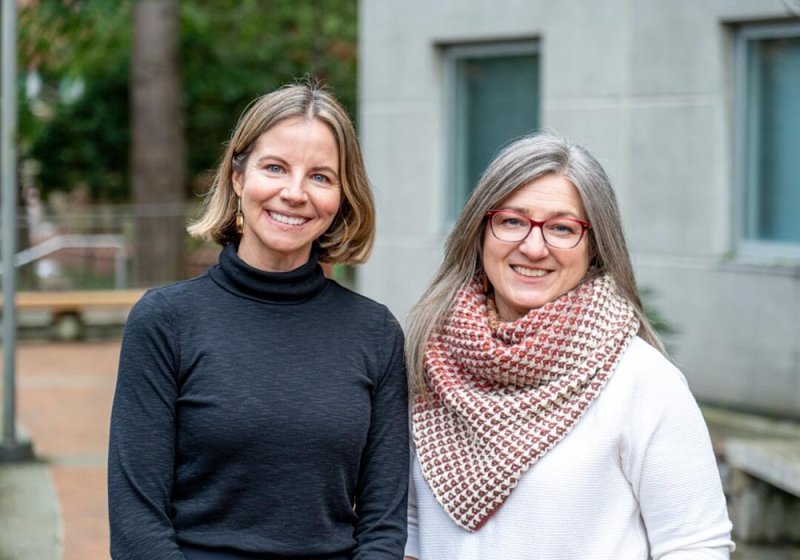New NSF-Funded Research Project at WWU Explores Equitable Science Education in Whatcom and Skagit Counties
The National Science Foundation (NSF) has awarded $1.7 million to Western Washington University’s Debi Hanuscin and Josie Melton for a 3-year project titled “CREST: Culturally Responsive Elementary Science Teaching” that aims to advance equitable science education in the elementary years.
CREST is a collaboration between faculty in WWU’s Science, Math, and Technology Education (SMATE) program and Western’s Woodring College of Education as well as local school districts, tribal nations, and community partners.
The project will provide high-quality practicum-based professional development for elementary teachers to prepare them to implement the Explore the Salish Sea (ESS) curriculum, a place- and project-based science curriculum grounded in both Western science and traditional ecological knowledge from Indigenous communities. Over three years, the project will work with a cohort of 30 elementary teachers, 30 preservice teachers, and approximately 1,700 students in Whatcom and Skagit counties.
Collaboration is key
According to Hanuscin, who is a professor of Elementary Education at Western, the CREST project brings together multiple entities that have been working independently, based on their shared values, interests, and goals.
“Funding from the NSF provided the means through which we could form a research and practice partnership. This type of work builds relationships among STEM educators at all levels (K-12, informal, and university) and stages of the research in order to identify more relevant questions and usable results that speak directly to concerns of educators,” Hanuscin said. “Giving equal voice to the insights, experiences and daily contexts of our partners is important to advancing both knowledge and practice. Our efforts differ from traditional research projects in which researchers are seen as holders of knowledge that, once disseminated to practitioners, can be applied to improve teaching and learning.”
Research conducted by the project team will examine how teachers leverage the ESS curriculum materials and customize instructional approaches to meet standards and the needs of diverse student populations.
The opportunity to study teachers’ curriculum use over time interested Melton, a SMATE research associate, in the project from the start.
“Debi and I worked together to develop instructional materials for a previous NSF project and became interested in how users of curricula adapt materials to meet their needs and the needs of their students,” said Melton.
How do curriculum materials change?
How teachers use and adapt these curriculum materials has a significant impact on learning, and can have a considerable effect on curriculum-driven efforts to promote equity in education. Yet, most current studies provide only a snapshot of teachers' curriculum adaptation -- often during their first-time implementing curriculum materials.
Because research indicates teachers need at least two iterations with curriculum materials to use them purposefully and skillfully, a three-year study by the CREST project will contribute valuable knowledge about how teachers' capacity to make culturally responsive adaptations changes over time as they gain experience using curriculum materials.
For more information about the project, please visit the grant team's website or contact Debi Hanuscin at hanuscd@wwu.edu or Josie Melton at meltonj2@wwu.edu .
